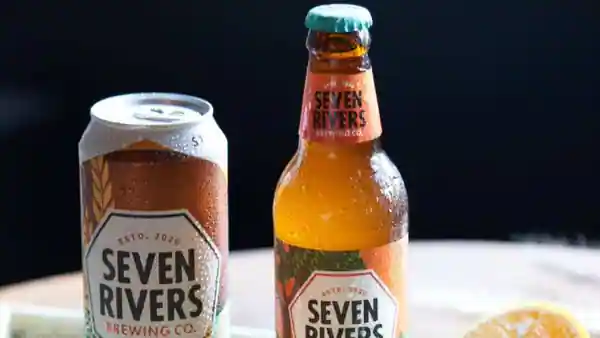Anheuser-Busch InBev, a brewery like Budweiser, Corona Xtra, and Hoegaarden, has introduced a new type of beer Seven Rivers in the Indian market. The new product is still being distributed in parts of Karnataka and Maharashtra first and will reach provinces such as Delhi, Goa, Haryana, and Uttar Pradesh during the current financial year. According to Blue Weave Consulting, the Indian beer market was worth $ 4.34 billion by 2020. The market is expected to reach $ 9.36 billion by 2027 and is expected to grow at a CAGR of 12.0% by 2021-2027. It says beer is the second most popular beverage in India after whiskey.
In 2020, the brewery launched the ‘7Rivers ’bar in partnership with IHCL-owned Taj hotels at its Taj MG Road hotel. The two companies are partners in the company, AB InBev offers newly brewed beer and IHCL owns the hospitality business side. “We believe we can make half the wheat beer in the country. We already have a very good contribution with Hoegaarden playing in the wheat beer category in the premium area. Affordable beer and we look forward to it all. You want to expand the region. India. We create a product from two different countries, one from Belgian heritage and the other from a modern Indian story. And that’s why not eating people in another market will do,” he said.
The price of Seven Rivers in Karnataka is Rs 130 per 500 ml can and in Maharashtra 165 a can of 500 ml and ‘strong beer’, Hefeweizen (German “white “beer) and a small amount of wheat beer, available at Witbier. (“White beer” from Dutch). Vikram Achanta, founder and CEO of a beverage training company and Tuliho, said the company’s reinforced wheat brand is noticing additional integration from its brewpub business to packaged stores.
“The company took the second most popular type of beer in India (wheat) and included it in the ‘Alcohol by Volume’ category. ABV Top Beers have the largest market share in India. Of course, they have to compete with their rivals. This has to do with what is already there, but it shows that big companies are ready to take risks and innovate and try to build local products instead of relying on international standards,” Achanta said.
Follow and connect with us on Facebook, LinkedIn & Twitter

